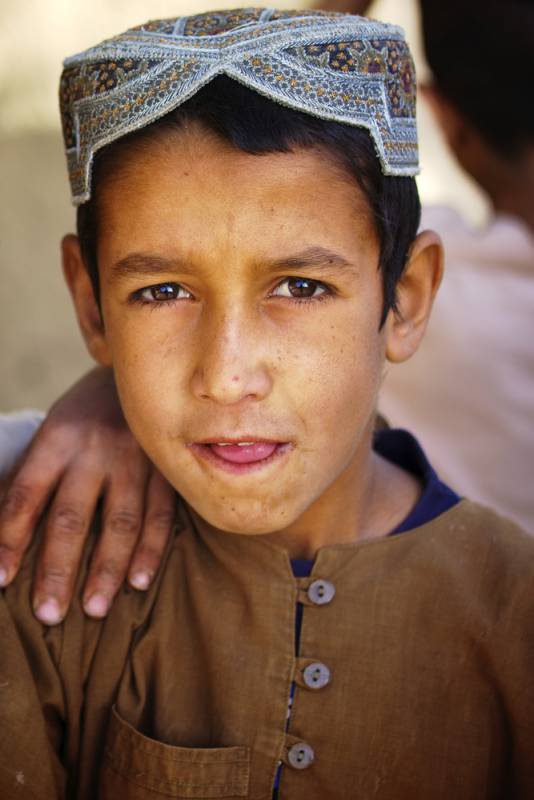The practice of bacha bazi sees powerful men abusing adolescent boys for sexual pleasure. But what happens when these boys grow up?
The 20-odd men who had come to the party were expecting a dancing boy, or bacha bereesh. Some were drinking, while others were smoking hashish in open windows, looking down into the street of the middle-class Kabul district of Karte-Char as they anticipated the boy’s arrival.
The 16-year-old Hazara youth was known as “the Chinoise” for his striking oriental features. Many had seen him dance at other parties. He was the jealously guarded “property” of a wealthy Kabul businessman who had promised to bring him around later in the evening.
Then, someone’s phone rang. The boy had been arrested by Afghan police while dancing at a wedding. Jokes went around about the reception a delicate youth like the Chinoise could look forward to in a Kabul jail.
But a last-minute substitute was found. At around midnight, the host threw back a curtain and a dancer leapt through the doorway. He was no dancing boy, but a man of about 40, his face starkly made up, his blue dress covered with tiny bells and sequins.
For a moment, the baffled partygoers only stared. Then, they began clapping with the music as the middle-aged dancer spun around them in a blur of light and color.
The Family Friend
His name is Kamal. When he was 14 years old, his father died and his mother placed him in the care of a family friend. He had never heard of bacha bazi, the practice of wealthy or powerful men conscripting adolescent boys into sexual slavery.
“He was someone I knew and trusted,” Kamal says of the man he once called master.
The Soviets had withdrawn from the country and a bloody civil war was underway. When Kamal’s mother and siblings fled to Pakistan, his master (or bacha baz) agreed to take care of the youth. It would be more than a decade before he saw his family again.
“I was his little prince,” Kamal recalls. “He used to hold my hand in the street. He told people I was his adopted son.”
Bacha bazi flourished in the years leading up to the rise of the Taliban, particularly among warlords and mujahideen fighters. Kamal remembers attending parties where other boys were on proud display, their masters vying to see who had the most attractive boy.
“I wasn’t the most beautiful of the boys, but I had one thing most of them didn’t have … I had talent.”
The Dancer
Kamal is reluctant to talk about the sexual component of his relationship to his bacha baz. “He never hurt me,” he insists. “He was always tender. He never traded me around with his friends as some did.”
Even the man’s wife eventually accepted the arrangement, lavishing attention on Kamal and treating him as a member of the family. It was she who arranged for him to study dance.
Kamal found that he had a natural aptitude for dancing, and he was soon in high demand at parties. He says that even the most hardened civil war fighters would watch in a state of helpless rapture.
But when the Taliban took control of the country in 1992, Kamal’s master was forced to flee with his family to India. Kamal was not invited to come along.
And like that, it was over—the parties, the dancing lessons, the stand-in family. Like many boys who “age out” of their enslavement, Kamal found he had nowhere to turn and no marketable skills but one: his dancing. Prostitution, a common fallback for many abused boys, did not appeal to him.
But with the rise of the ultra-Islamic Taliban, music, dancing and even the practice of bacha bazi all went underground. Those were dark years for Kamal.
“I had to become a new person, someone who wouldn’t attract attention,” he says. “A part of me had to die so that I would not feel pain.”
The rebirth of terror
With the fall of the Taliban in 2001, the practice of bacha bazi saw a renaissance. Under the new government, many former warlords were able to resume positions of influence, taking young boys as symbols of status and prestige.
A 2014 study by Hagar International found that on average, one in ten Afghan boys they interviewed had experienced some form of human trafficking, including bacha bazi. Sara Shinkfield, country director of Hagar Afghanistan, called the study “a striking reminder that boys in Afghanistan are even more at risk than girls for trafficking.”
Kamal, who now dances professionally at parties and weddings, comes in contact with many abused boys, some as young as 9 or 10. Even at that young age they already carry the emotional scars of rape and violence.
“It breaks your heart,” he says. “You look into their eyes and they already look old. Something inside them has died.”
Most boys enter into bacha bazi because of extreme poverty. The bacha baz will often pay to sustain a family for years in return for “ownership” of a boy.
Those boys who escape often have no resources to fall back on, and many eventually end up returning to their former master. In rare cases, where a victim brings charges against his abuser, it is often the boy—lacking money and influence—who is sent to prison.
While the Afghan government pays lip service to ending the practice, bacha bazi is known to exist among the military, police and the echelons of government. When the United Nations raised the issue before then-President Hamid Karzai, he replied: “Let us win the war first. Then we will deal with such matters.”
Just as the end of that war seems more and more elusive, the practice of bacha bazi seems unlikely to loosen its current hold. The practice is deeply entrenched in Afghan culture, reaching back to its pre-Islamic past. When Alexander the Great passed through the area, he took possession of Bagoas, a Persian dancing boy, with whom he was on intimate terms until his death. Even the 16th century Mughal emperor, Babur, had a well-known ardor for catamites.
Such quaint historical references are far removed from the contemporary horror faced by many unwilling initiates into bacha bazi. Recruited from among the poorest of the poor, their suffering is often overlooked by the Afghan judiciary, which affords few legal protections to abused boys. With no education or support, many boys become criminals, while some become a bacha baz themselves.
While Kamal tries to help such boys when he can, it’s often too dangerous. For many abusers, the bacha bereesh is coveted property, and rescue is perceived as tantamount to theft.
“Most of them aren’t as lucky as I was,” he says. “I received training. I have a job and a life. I have clients calling me every day of the week.”
Does he think the practice will end anytime soon? He looks down at his manicured nails.
“It should. It needs to. But it won’t.”
*[This article was originally published by The World Weekly.]
The views expressed in this article are the author’s own and do not necessarily reflect Fair Observer’s editorial policy.
Photo Credit: Nate Derrick / Shutterstock.com
 We bring you perspectives from around the world. Help us to inform and educate. Your donation is tax-deductible. Join over 400 people to become a donor or you could choose to be a sponsor.
We bring you perspectives from around the world. Help us to inform and educate. Your donation is tax-deductible. Join over 400 people to become a donor or you could choose to be a sponsor.
Support Fair Observer
We rely on your support for our independence, diversity and quality.
For more than 10 years, Fair Observer has been free, fair and independent. No billionaire owns us, no advertisers control us. We are a reader-supported nonprofit. Unlike many other publications, we keep our content free for readers regardless of where they live or whether they can afford to pay. We have no paywalls and no ads.
In the post-truth era of fake news, echo chambers and filter bubbles, we publish a plurality of perspectives from around the world. Anyone can publish with us, but everyone goes through a rigorous editorial process. So, you get fact-checked, well-reasoned content instead of noise.
We publish 2,500+ voices from 90+ countries. We also conduct education and training programs
on subjects ranging from digital media and journalism to writing and critical thinking. This
doesn’t come cheap. Servers, editors, trainers and web developers cost
money.
Please consider supporting us on a regular basis as a recurring donor or a
sustaining member.
Will you support FO’s journalism?
We rely on your support for our independence, diversity and quality.









Comment